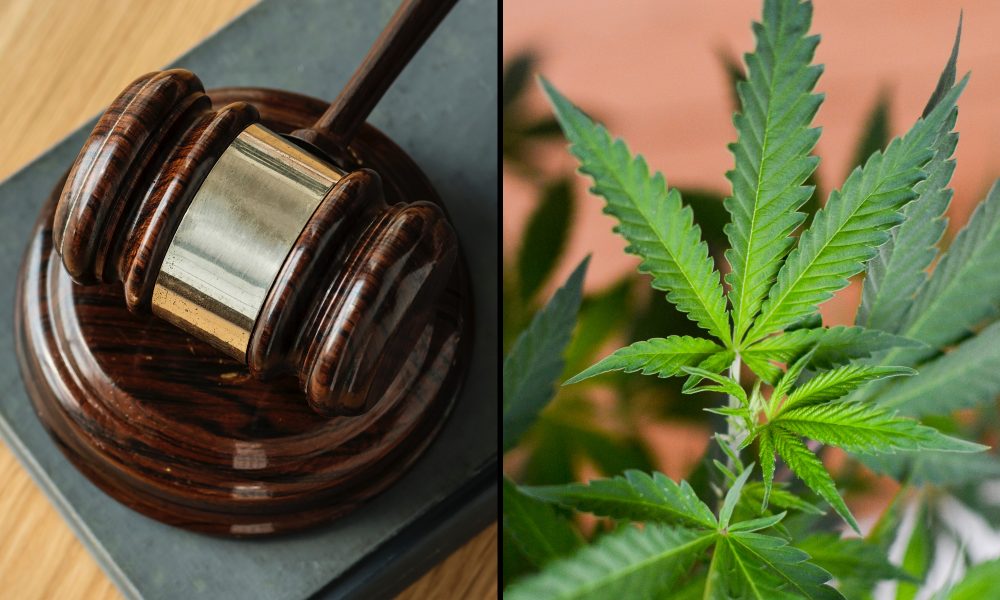The Florida Supreme Court has agreed to give the state attorney general two additional weeks to submit a brief detailing her argument that a proposed marijuana legalization initiative should be kept off the 2024 ballot.
The initial briefs were initially due by Monday, but the court approved an uncontested motion to push that deadline back to June 26 because Attorney General Ashley Moody’s (R) office said that it “has multiple pressing deadlines with limited staff assistance” that is preventing the argument from being completed on time.
Attorneys for the cannabis legalization campaign did not object to the deadline extension, and the court granted it on Tuesday—but not without warning Moody against seeking continual delays.
“Multiple extensions of time for the same filing are discouraged,” the court said in its order. “Absent extenuating circumstances, subsequent requests may be denied.”
State officials confirmed last week that the Smart & Safe Florida campaign collected enough valid signatures to qualify the legalization initiative for the 2024 ballot.
The Florida Division of Elections, which updates petition counts on the measure at the end of each month, reported that it had verified 967,528 signatures as of the end of May—exceeding the required 891,523 signature threshold.
At the end of January, the measure cleared an initial major hurdle, getting enough signatures to initiate a state Supreme Court review of the measure’s language, which the attorney general’s office is now challenging.
Moody submitted an initial filing to the court last month, briefly arguing that it violates the state Constitution’s single subject rule for ballot measures and saying she would detail her position in a subsequent briefing.
Despite the attorney general’s opinion, activists say that they’ve thoroughly vetted the measure and are confident the court will agree that it complies with constitutional requirements.
Moody made the same argument against a 2022 legalization measure, and the Supreme Court subsequently invalidated it. Initial briefings on the current case are due to the court by June 12. Subsequent reply briefs will then be required to be submitted by July 5 and 12.
In order to get on the ballot, an initiative must have valid signatures from registered voters totaling at least 8 percent of the district-wide vote in the most recent presidential election in at least 14 of the state’s 28 congressional districts—in addition to the statewide number needed. The marijuana campaign has met the threshold in exactly 14 districts, according to the recently updated state data.
The cannabis company Trulieve, which is financially backing the Smart & Safe Florida campaign and has contributed more than $38 million to date.
If approved, the measure would change the state Constitution to allow existing medical cannabis companies in the state like Trulieve to begin selling marijuana to all adults over 21. It contains a provision that would allow—but not require—lawmakers to take steps toward the approval of additional businesses. Home cultivation by consumers would not be allowed under the proposal as drafted.
Adults 21 and older would be able to purchase and possess up to one ounce of cannabis, only five grams of which could be marijuana concentrate products. The three-page measure also omits equity provisions favored by advocates such as expungements or other relief for people with prior cannabis convictions.
A poll published in March found that 70 percent of Florida voters support legalizing marijuana. Florida voters approved a medical cannabis constitutional amendment in 2016.
Here’s what the Smart & Safe Florida marijuana legalization initiative would accomplish:
Adults 21 and older could purchase and possess up to three ounces of cannabis for personal use. The cap for marijuana concentrates would be five grams.
Medical cannabis dispensaries could “acquire, cultivate, process, manufacture, sell, and distribute marijuana products and marijuana accessories to adults for personal use.”
The legislature would be authorized—but not required—to approve additional entities that are not currently licensed cannabis dispensaries.
The initiative specifies that nothing in the proposal prevents the legislature from “enacting laws that are consistent with this amendment.”
The amendment further clarifies that nothing about the proposal “changes federal law,” which seems to be an effort to avoid past legal challenges about misleading ballot language.
There are no provisions for home cultivation, expungement of prior records or social equity.
The measure would take effect six months following approval by voters.
—
Marijuana Moment is tracking more than 1,000 cannabis, psychedelics and drug policy bills in state legislatures and Congress this year. Patreon supporters pledging at least $25/month get access to our interactive maps, charts and hearing calendar so they don’t miss any developments.
Learn more about our marijuana bill tracker and become a supporter on Patreon to get access.
—
Here’s the full text of the ballot title and summary:
“Allows adults 21 years or older to possess, purchase, or use marijuana products and marijuana accessories for non-medical personal consumption by smoking, ingestion, or otherwise; allows Medical Marijuana Treatment Centers, and other state licensed entities, to acquire, cultivate, process, manufacture, sell, and distribute such products and accessories. Applies to Florida law; does not change, or immunize violations of, federal law. Establishes possession limits for personal use. Allows consistent legislation. Defines terms. Provides effective date.”
Should the initiative make the 2024 ballot, at least 60 percent of Florida voters would have to approve the measure for it to be enacted.
An earlier poll released in 2021 found that a majority of Florida voters (59 percent) support legalizing cannabis for adult use, so that’s a slim margin that shows that advocates will have their work cut out for them if the measure qualifies.
Meanwhile, activists that aren’t directly involved in the Smart & Safe Florida campaign said last year that they were exploring plans to have voters decide on what they hope will be a complementary measure permitting adults to grow their own cannabis at home.
Amazon-Owned Twitch Bans Streamers From Promoting Marijuana But Allows Alcohol Branding In Policy Update
Photo elements courtesy of rawpixel and Philip Steffan.
Read the full article here









